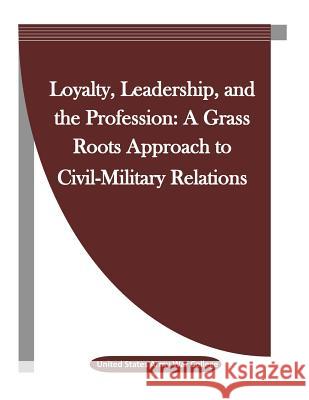Loyalty, Leadership, and the Profession: A Grass Roots Approach to Civil-Military Relations » książka
Loyalty, Leadership, and the Profession: A Grass Roots Approach to Civil-Military Relations
ISBN-13: 9781523312528 / Angielski / Miękka / 2016 / 28 str.
Institutional tensions between civilian government leaders and senior military officers have waxed and waned over the 223-year history of our republic. The framers of our constitution laid the foundation for this relationship and defined its basic tenets based on their experience under British colonial rule and with an innate disdain for the unchecked power of a poorly regulated militia. Recent events lend a fresh urgency to recurring concerns about the potential harm that could result from violations of those tenets. The voting public constitutes the third element of a "civil-military trinity" officers must consider when defining the limits of appropriate behavior as they interact with their political masters. In addition to maintaining the trust relationships critical to the proper functioning of governmental processes and the national-security apparatus, observing these limits will help the military maintain professional autonomy. Differences in military and civilian culture explain some of the tension that could erode this trust. Education and information sharing can do much to decrease this "gap in civil-military relations," but military professionals must also reinforce their professional ethic and avoid incidents of public dissent. This book investigates these dynamics of civil-military relationships and attempts to define those limits.











